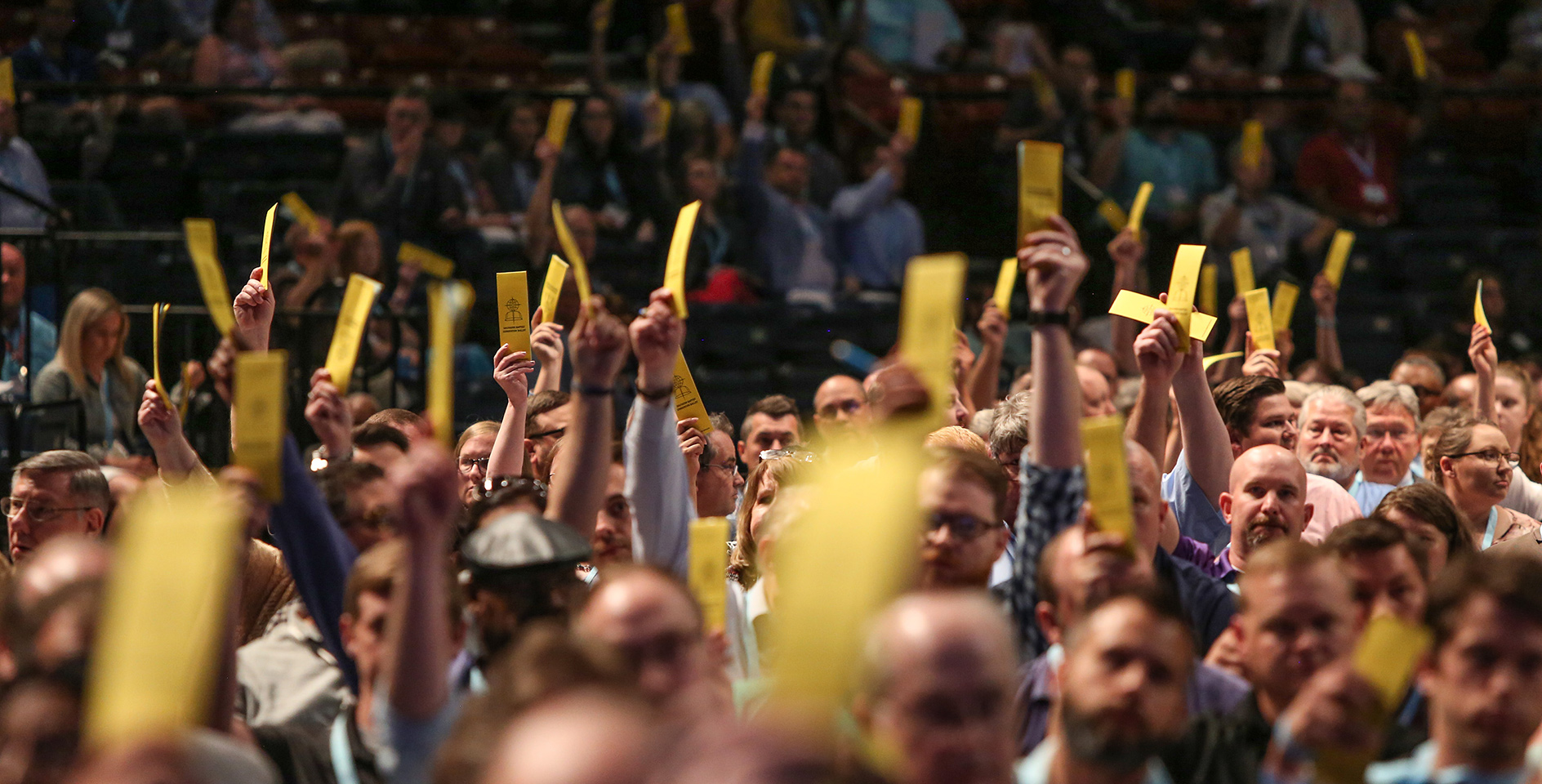Recently the Mega Millions lottery jackpot was $1.6 billion. Prior to the drawing on Tuesday, anyone who played had a roughly 1 in 292,000,000 chance of winning. Ludicrously slim odds. So slim, according to one mathematician, if someone were to place a penny somewhere on a football field and then blindfolded you and asked you to place a penny in the exact same place, you would be 15 times more likely to place your penny on the penny already on the field. Like I said, astonishing odds.
But the human race is full of irrational optimists. Some who have never even played a lottery in their life will cave to the intrigue of winning that record-setting pot. The “just maybe” appeal is irresistible.
Gambling has enriched no one’s life. The promise of unearned reward preys on what appears to be an insatiable human penchant for risk and suspense. Even its winners are really losers. Its appeal is won only through elaborate and sinister deceptions. Those who gamble on a regular basis never come remotely close to breaking even. Even those who win big end up losing. Approximately three in four jackpot winners file for bankruptcy within five years. So, it comes as no surprise that many who win big and then lose it all look back on their time of sudden wealth with tragic regret.
Most moral appraisals of gambling tend to focus on the relative irresponsibility or impudence of lotto players, but I want to offer a different claim. The culpability for the perils of the lottery system lays more so on the state authorities who knowingly allow for gambling programs to exploit the poor. State-sponsored gambling is, statistically speaking, a de facto poor tax. It is continued only because lawmakers cannot bear to make harder fiscal decisions to raise taxes or cut programs.
According to a 2012 study, a full 61 percent of all lottery players are from the bottom fifth socio-economic bracket. The majority of lottery tickets are purchased in low income neighborhoods. Approximately 1 in 5 Americans believe winning the lottery is the only way to secure significant savings or retirement. This is not to suggest, of course, that those in higher socio-economic brackets do not play lottery—around 40 percent do. However, higher earners tend to have more expendable income and likewise do not plan their financial future around the prospect of winning the lottery. State officials have been aware of this socio-economic disparity for quite some time.
This sort of targeted exploitation of the poor is directly condemned in Scripture. “Protect the person who is being cheated from the one who is cheating him,” warns the prophet Jeremiah (22:3). And a similar imperative is given in Proverbs: “Don’t take advantage of the poor just because you can (22:22a), for whoever oppresses a poor man insults his maker “(14:31). Elsewhere in Proverbs, the imperative is put with chilling directness, “Whoever closes his ear to the cry of the poor will himself call out and not be answered” (21:13). And it is in light of these, and still other forceful commands, that we must take John’s question with absolute seriousness: “But if anyone has the world's goods and sees his brother in need, yet closes his heart against him, how does God's love abide in him” (1 John 3:17)?
The church, therefore, must object to the lottery system’s deliberate exploitation of the poor. There are better, more equitable means of raising revenues for state budgets. Whether the poor would gamble anyway is irrelevant. The poor would not be encouraged to take defeating personal risks as they are currently if there was no state-sanctioned lottery. Crucially, the poor would not be speculating on lottery cards in the first place if they were not poor, and thus the cunning of the lottery system is cast in even starker relief: its legitimacy as a program depends entirely on perpetuating acute poverty. In other words, although the stated purpose of state-sponsored lottery is to enrich lucky winners, the actual purpose is expropriation. Lottery promises the poor a golden ladder out of poverty but always at the cost of further poverty.
I do not suppose to speak for the whole of Christ’s church, but with what little force I myself can lend to the claim, I wish to call for the abolition of all state-sanctioned gambling. I realize the near-futility of doing so. State budgets are now greatly dependent on lottery revenues. I get it. But this is an obvious case of the means not justifying the ends, just as it is an obvious case of rejecting God’s command to care for the poor. Authorities must own to the fact that state-sponsored gambling was designed to oppress the poor through cunning expropriation. As a result, I call for abolition of state-sponsored gambling not because I think it is likely, but because God has made known his heart for the poor. And one day, all of us will give an account.










